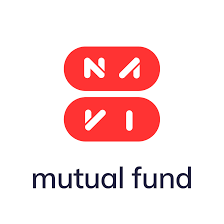Who is Not Eligible to Buy Digital Gold in India?
In recent years, digital gold has emerged as a popular and convenient way for Indians to invest in this precious metal, especially during festive seasons like Diwali, Dhanteras, and Akshaya Tritiya. While digital gold offers numerous benefits, such as safety and ease of buying and selling, not everyone in India is eligible to purchase it. In this article, we will explore the eligibility criteria for buying digital gold in India and specifically focus on who is not eligible to make such transactions.
Also Read: How Can NRIs Invest in Government Bonds and T-bills?
Contents
What is Digital Gold?
Digital gold, as the name suggests, allows individuals to easily and conveniently acquire and save gold online. It is essentially a digital representation of real gold, with the equivalent weight of gold stored securely in a vault for each online transaction. This method of investing in gold has gained traction due to its flexibility, enabling individuals to buy gold in small amounts over an extended period in any denomination they prefer.
Who is Not Eligible to Buy Digital Gold in India?
Now, let’s delve into who is not eligible to purchase digital gold in India, based on the information provided in the article:
- Minors: One category of individuals excluded from buying digital gold in India is minors. Minors are typically not allowed to conduct financial transactions independently. Therefore, if you are under the age of 18, you are not eligible to purchase digital gold.
- NRI Customers Without an NRO Account: Non-resident Indians (NRIs) living abroad may have an interest in investing in gold, just like Indian residents. However, the eligibility criteria for NRIs differ. The article specifies that NRI customers without an NRO (Non-Resident Ordinary) account are not eligible to purchase digital gold. NRO accounts are specific to NRIs and are used for managing their income earned in India.
How to Buy Digital Gold on Google Pay?
While understanding who is not eligible to buy digital gold is vital, it is equally important to know how to go about buying digital gold, especially through platforms like Google Pay. Here are the detailed steps on how to buy digital gold on Google Pay:
- Step 1: Open the Google Pay app on your mobile device.
- Step 2: Click on “New,” and in the search bar, enter “Gold Locker.” Then, search for that term.
- Step 3: Tap on “Gold Locker” from the search results.
- Step 4: Click on “Buy.” According to Google Pay, “The current market buying price of gold (including tax) appears. This price stays locked for 5 minutes after you begin the purchase, as the buying price may change throughout the day.”
- Step 5: Enter the amount of gold you want to buy, in Indian Rupees (INR).
- Step 6: Click on the checkmark icon. Select your preferred payment method in the window that appears and click on “Proceed to pay.”
After you have completed the transaction, the purchased gold should appear in your digital locker within a few minutes. It’s important to note that once the order has been processed, it cannot be canceled. However, you can sell it back at the current market price.
Any money deducted during your gold transaction will be returned in three business days if the payment is unsuccessful.
FAQ: Buying Digital Gold – Taxes, Purchase Limits, and KYC Regulations
Here are some frequently asked questions regarding the important aspects to consider while buying digital gold on platforms like Google Pay:






